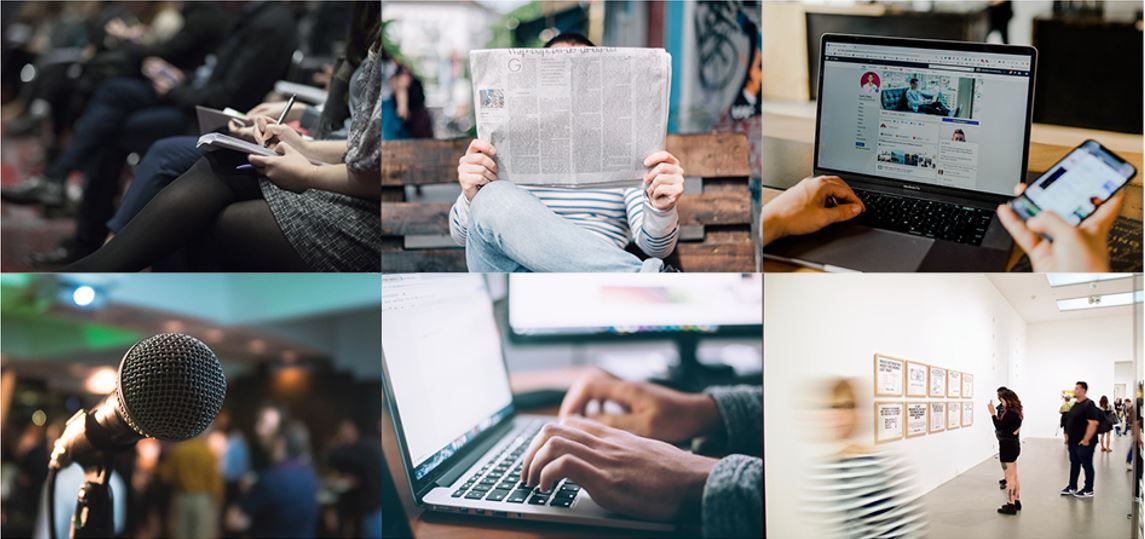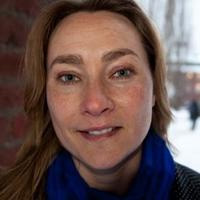Science Impact Talks to offer tools, inspiration, writing tips and new insights on impact

Katarina Larsen, researcher at the Department of Philosophy and History, is project manager for the new seminar series Science Impact Talks (SIT), which is aimed at researchers and teaching staff at KTH. The aim is to provide inspiration, practical tips and strengthen the skills of KTH staff in communicating research.
Katarina shares plans for the initiative and the importance of exploring different communication methods to disseminate your research.

Why start a new seminar series on societal impact and research communication?
- It is important that researchers are given the tools, and time, to practically reach out to different target groups. Some already receive training in this during their primary or doctoral education, while for others it is an unexplored area to write about their research in popular science texts or debate articles. KTH's researchers are highly engaged in society and have the ambition to make a difference. Many are involved in writing debate articles, giving interviews in various media or being active on social media to spread their research results and their specialised knowledge. We aim to encourage more people to explore different approaches to reach a wider audience with their important research.
Katarina Larsen emphasises that the Science Impact Talks initiative will not only provide new tools but also time to reflect and discuss different ways of communicating research results and different types of research impact. These seminars also provide a chance for sharing experiences, dialogue through invited speakers and discussions.
Science Impact Talks is a KTH-wide initiative, but the first round is organised by the ABE School. The seminars are open to staff at all KTH schools, mainly aimed at doctoral students and junior researchers and teaching staff. The aim is to provide support, tools, inspiration and new insights into different types of impact and encourage new thinking. Ultimately, the initiative aims to strengthen KTH's researchers' tools to participate in the public debate, disseminate results from research at KTH and get inspiration to use new tools for societal impact and research communication.
- Impact can happen in different ways, and we want to explore this in its broadest sense. How can we together create knowledge and understand the recipients' perspective on the research? The talks will be given by both KTH staff and external parties, such as those working with popular science texts, to share insights from collaborators and their expectations of us. There is a wide range of exciting topics that engage researchers, and it is important to capitalise on this engagement. The spring seminars are a starting point and the series will evolve over time.
Why is it important to think about your impact on society and how your research is communicated?
- It is an integral part of research to ensure that it reaches out and is used in a meaningful way. This can mean, for example, thinking about how to reach the groups we need to reach and identifying other relevant stakeholders. In practical terms, it is also about responding to funders' expectations. In interdisciplinary projects, it is particularly important to clearly define the objectives and work on reaching out with results that span several scientific fields. Knowledge about impact and ways of working with research communication is dynamic and changes in line with digitalisation and other ongoing societal changes. This also means that there is a great interest in learning more and that it is an ongoing development where further education and new inspiration is important.
What else do you do?
I research issues of co-production of knowledge in the development of sustainable cities and communities in Sweden and Europe within initiatives such as JPI Urban Europe. I have also worked with co-creation of knowledge through dialogue processes, in a project in Colombia. There, dialogue processes with the local population are used to create participation and local commitment for increased sustainability based on respect for local traditions and knowledge in change processes. In addition, I have been working on integrating artistic expressions in the research, especially the relationship between image and text in information dissemination through dialogue processes with citizens and municipalities. Right now we are planning a workshop with KTH students, together with Students for Sustainability, on creative writing about climate futures and different ways of conveying messages by combining text and visual material.
